Scottish independence: What is behind the shake-up in No 10?
- Published
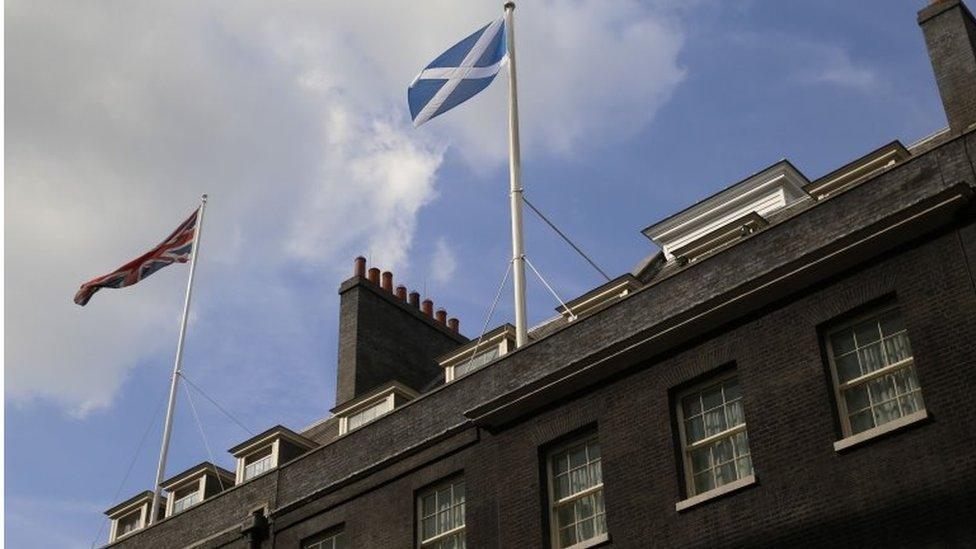
Scotland's flag flying above Downing Street
The PM has drafted in a key Brexit ally to look at how to save the union. What's the plan?
The Scottish election in May is going to be a big political moment- and not just for Scotland.
The SNP will use any victory as a mandate for another independence referendum.
As we've covered before, there is a lot of head-scratching going on in the UK Government about what to do.
For months polls have suggested rising support for independence and there are many unionists who believe the UK is on shaky ground.
That is why a shake-up at Boris Johnson's "Union unit" - based in Number Ten - matters.
Personnel changes in Whitehall aren't uncommon - but it's a sign of the nervousness around the union issue that the prime minister has made a significant change 13 weeks out from the Holyrood vote.
The prime minister has replaced former MP Luke Graham with deputy Brexit negotiator - and Vote Leave alumni - Oliver Lewis.
Several sources have said that decision means Mr Johnson will now have a trusted senior aide - who can get things done in Government - focused on the union.
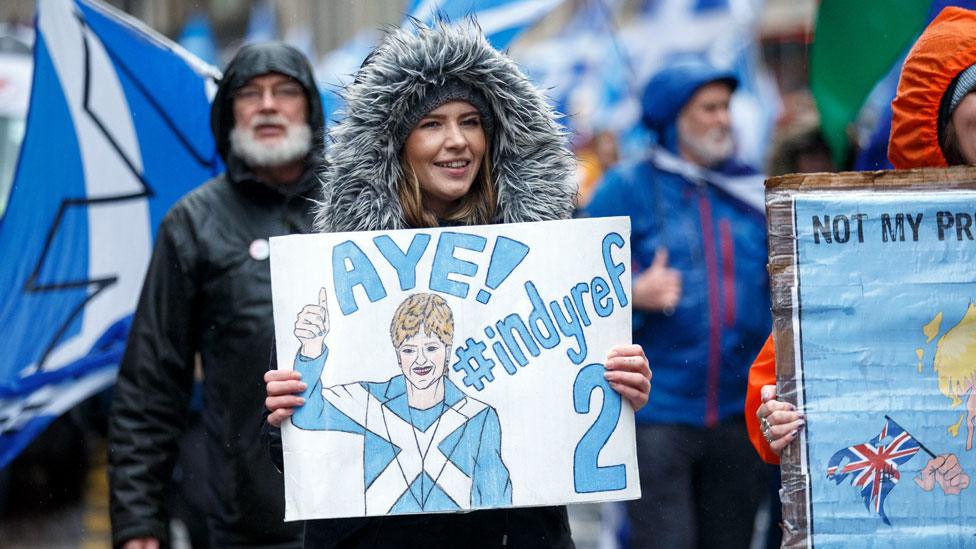
Supporters of independence are hoping for another referendum
"It is an escalation of the issue," says one well-connected MP. Another adds: "He's got a brain the size of Britain, he'll add some weight."
A committee of cabinet ministers - including Cabinet Office Minister Michael Gove and Scottish Secretary Alister Jack - already meet most weeks to discuss union strategy.
Mr Gove in particular has been doing a lot of work on how to stop rising support for independence. But Whitehall is a big place - and No 10's role is important.
The unit has two key roles; to think about policies which will help "strengthen the UK" and to make sure government departments understand the impact their policies have on devolution.
The latter has been particularly tricky.
There is great frustration in some parts of government that devolution is an afterthought, rather than a key issue to be thought through in policy-making.
For example, does a policy apply to the whole of the UK or just England?
If it involves funding, are there knock-on effects that mean more money going to Edinburgh, Cardiff or Belfast?
Several people I've spoken to said there had been a feeling for some time that the unit wasn't achieving what it needed to in both respects.
Government ministers and Tory MPs felt it wasn't making its presence felt.
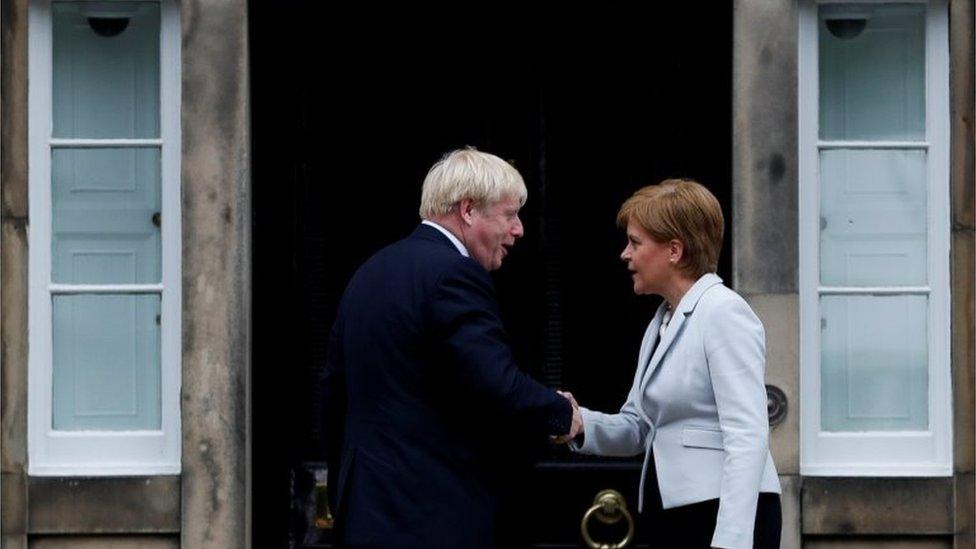
Boris Johnson and Nicola Sturgeon meeting back in 2019
Mr Lewis will be tasked with changing that. There is acknowledgement in government that if they are going to keep the UK together, ministers in London need to make their case a lot better.
One of the main ideas in government is to make it much clearer when the UK government is involved in Scottish life.
Oliver Lewis was involved in the UK Internal Market Bill - passed by Westminster to protect the UK "internal market" after Brexit.
It was highly controversial; the Scottish Government viewed it as an attack on devolution because it allowed London to fund projects in devolved areas.
But for the Westminster government, that's a key way of showing Scottish voters that the Treasury plays an important role in Scottish life.
We can see a hint of where Mr Lewis might see his Union unit going.
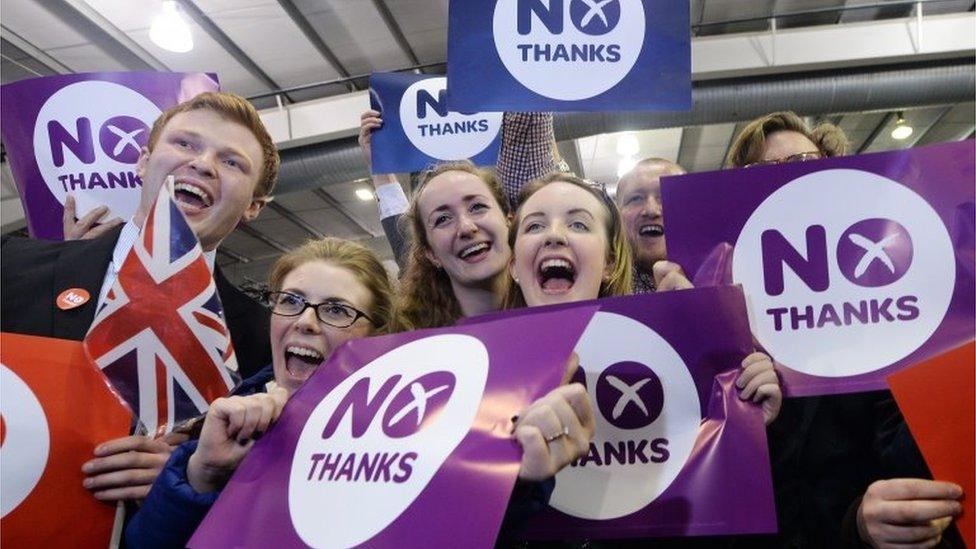
Pro-union supporters celebrating the outcome of the last referendum
There have been some grumblings in parts of the Scottish Tory party about how Luke Graham was removed from his post - and that it leaves a lack of expertise on Scottish politics in No 10.
Others have questioned whether putting a key Vote Leave figure in charge of keeping Scotland in the UK is sensible strategy - remember Scottish voters wanted to stay in the EU and it's the Brexit issue that has led some to rethink their stance on independence.
Others however believe Mr Lewis comes at the issue with no baggage in Scottish politics - he has a clean slate to approach the union question.
And this isn't just about Scotland; as a Brexit expert he knows well how the Northern Ireland Protocol works too. On the whole, the shake-up has been welcomed.
'The biggest question'
The Scottish Tory party will still dictate policy ahead of the Holyrood election. Mr Lewis isn't expected to play a major role in the campaign.
And that leaves space to think about one of the biggest questions the UK Government will face on the union in the coming months - how to deal with demands for another referendum if the SNP win big in May.
The UK government plans to say no, but the SNP has said it would publish a referendum bill in Edinburgh and dare the UK government to challenge it in court.
Ministers in London need a strategy to deal with that - and Mr Lewis may find he has some time to think about what exactly it should be.
Related topics
- Published4 February 2021
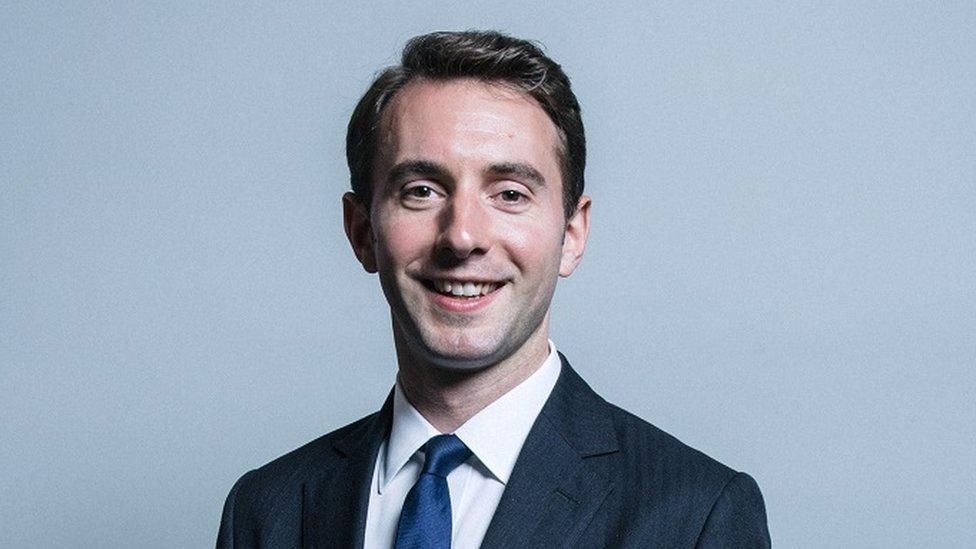
- Published28 January 2021
- Published23 November 2022
